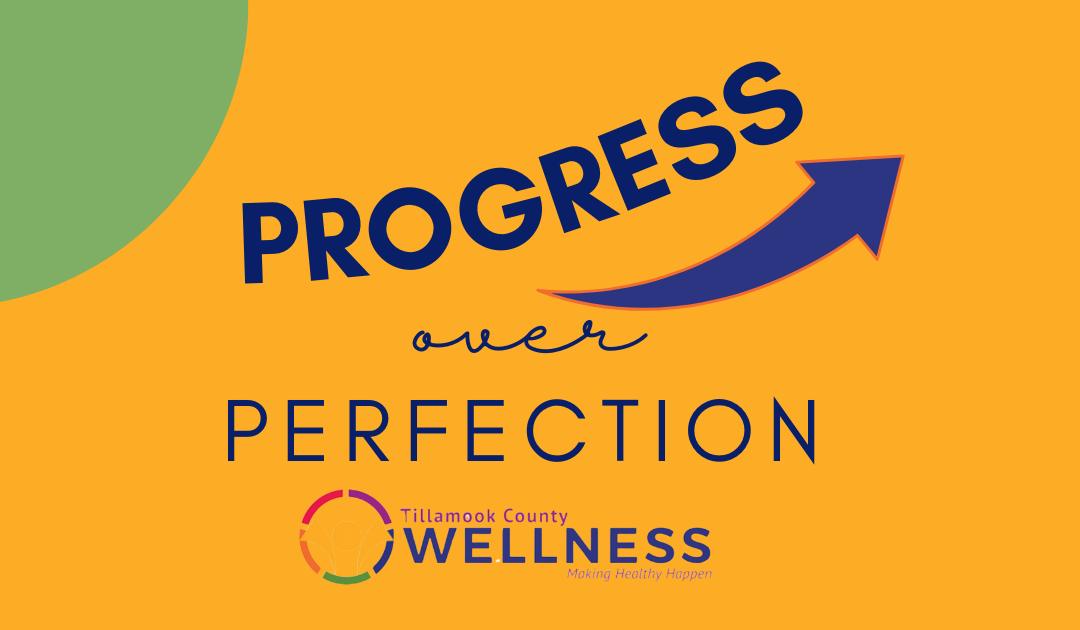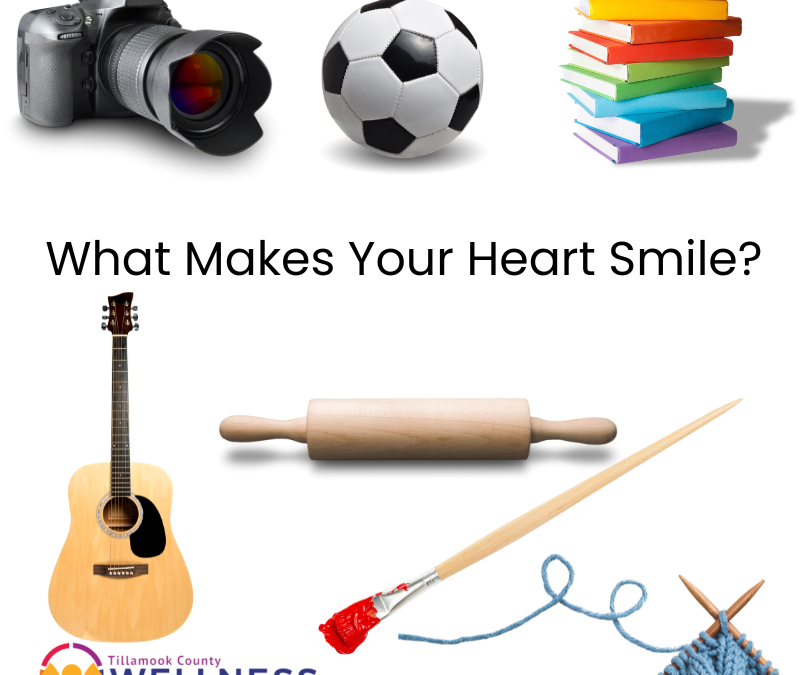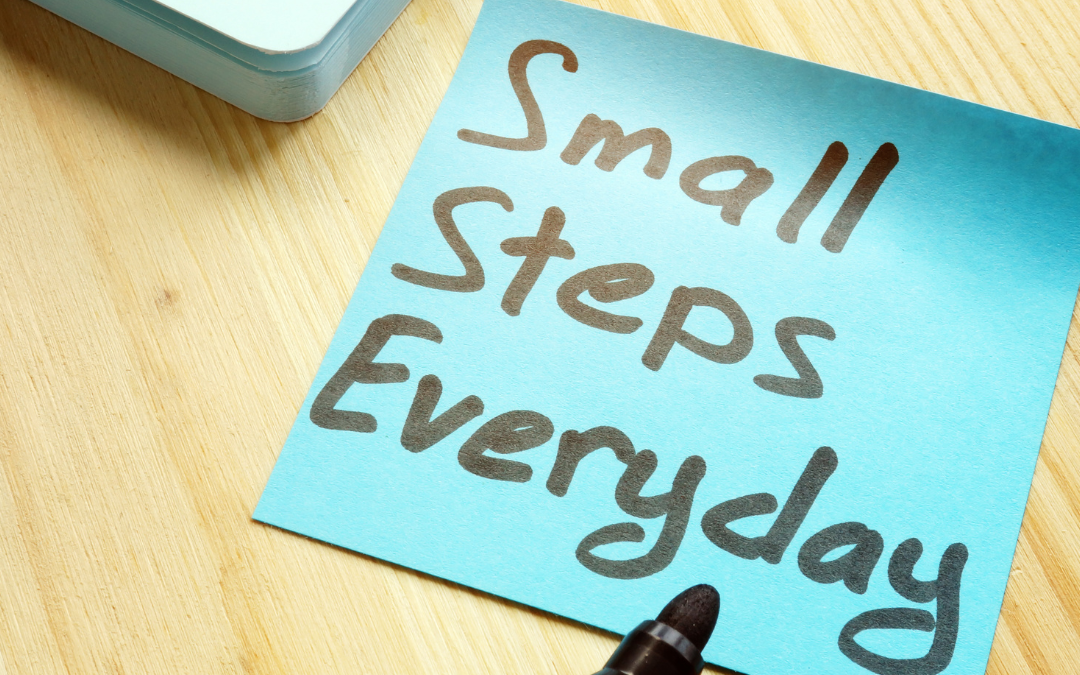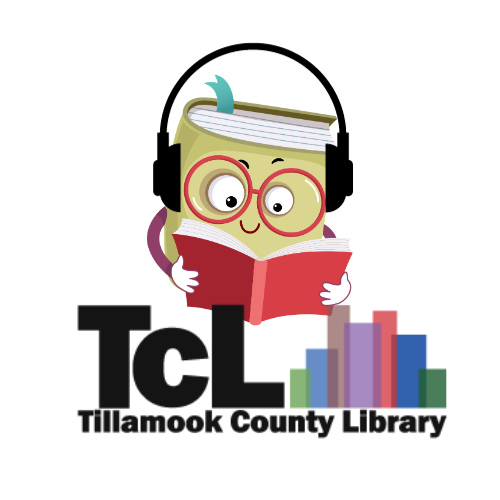
by Guest | Feb 12, 2024 | Being Well, Featured, Uncategorized, Work Well
By Guest Author: Emery Edwards
I’m a perfectionist. I always have been, and I probably always will be in some capacity. So, my health improvement journey has been a struggle. Somewhere in the 21 years before I started trying to change my life, I had gotten this idea that if I couldn’t do it perfectly the first time, I couldn’t do it at all. I’m sure some of you have felt similarly, especially when it comes to your health. There have been countless times where I’d stuck to my goals for a week or two, but I am inevitably confronted with a birthday party, a night out, or anything that might challenge your newly formed habits. I’ve always felt it’s a zero-sum game- I default on my healthy habits one time, and my progress is null, and I might as well give up. Many of us who have embarked on the journey of improving holistic health have experienced this, and it’s okay. What will be more damaging than one day, one week, or one month of falling back, is if you believe that the progress you’ve made up until that point means nothing because you weren’t perfect.
This is where progress over perfection comes in. Recognizing that you are making progress, but you’re not perfect, is the way I’ve been able to transform my habits over the last 6 months. Instead of chastising myself for not exercising one day or eating something that does not serve my body, I recognize that overcoming these habits is a longer journey than I had been led to believe. Crash diets, unrealistic societal expectations, ‘lose weight quick’ schemes, and the like have warped my thoughts about health for a decade, and I know I’m not alone in this. If it has been instilled in you for so long, it will inevitably take more than a couple months to fully change your mindset. Giving yourself grace in this journey of feeling better is more important than absolute perfection. But you must want to feel better to make these changes sustainable.
It takes dedication to make that progress and change your lifestyle. I started with upping my fiber and protein intake through whole foods and reduced the simple carbohydrates and sugars in my diet. It took me mere weeks to feel more present in my body, have more energy, and improve my sleep quality. It took me months, however, to make these practices a daily habit. Instead of giving up when I gave in to the residual cravings, I would wake up the next day and continue with the goals I had been working towards. My world does not stop when I eat a chicken strip, and I promise that yours doesn’t either. Maybe pair that chicken strip with some roasted vegetables like brussels sprouts, broccoli, or a simple garden salad to make it more nutritious. It’s all about adding what you need to satisfy the craving in a healthier way, and after you eat it, move on to meeting your goals. The name of the game is progress, not perfection. But when I tell you, I went from needing a nap in the middle of the day to function to having the energy to take me through the entire day without a yawn, I am telling you the truth.
I am only 6 months into my progress over perfection journey, so I’m no expert. But what I will say is I have never in my life felt as good as I do today, and every day gets even better. I started with my eating because I had no energy to introduce exercise into my routine, now I have too much energy to sleep if I don’t exercise. It’s a beautiful problem to have. I would not have gotten this far if I had given up the first time that I ate something I told myself I wouldn’t. Which probably happened within a week of starting the journey if I’m honest. The name of this game is grace- give it to yourself, to others, and remember that it’s all about your overall progress, not being perfect.
For more local health and wellness information, visit www.tillamookcountywellness.org or follow Tillamook County Wellness on Facebook and Instagram.

by Michelle | Feb 5, 2024 | Being Well, Featured, Work Well
At the start of a new year, many of us think about restarting exercise regimens, meal prepping and other weight-loss oriented goals. While losing weight is good for our self-image and our health, it can often be difficult to achieve. If we aren’t successful, it can cause us to “throw in the towel” – at least until the start of the next new year. What if there are other pathways to become healthier, happier versions of ourselves?
What is often overlooked is that our health goals are usually more about how we feel than how we look. We want to be able to do the things we used to do, be happier, have more energy and a greater sense of meaning in our lives. While running a 5K or eating the recommended daily servings of vegetables will help us achieve those goals, there are other ways we can get there.
Think back to when you were 7, 11, or 20 years old. What brought you joy? Were there hobbies or activities you enjoyed doing, that made you feel good about yourself; where you got to put your unique skills to the test, or share your gifts with others? As a child I loved reading and journaling from a very young age. By the time I graduated from college, I had abandoned both of those pastimes. I simply hadn’t had time between going to school and working full time. Once I began to reintroduce those activities, I felt my old self coming back. And that prompted more awareness of what I needed to feel fulfilled. And what was draining my energy.
Maybe it’s time to get out your golf clubs, tune that instrument or dust off your art supplies. Or, maybe this is the time to make your someday start today. What is the thing you have caught yourself saying multiple times? “Someday I am going to ‘do the 52 hikes challenge,’ or ‘grow a vegetable garden’ or ‘learn how to crochet.’” There are free, local resources to help you get started with all of these activities. Our local library system offers Mango, a free language learning app. They even have a “library of things,” like binoculars to go bird watching or tools to start that woodworking hobby. The possibilities are endless.
I know what you’re thinking. This is all well and good but I do not have time for such frivolities. The truth is that most of us are spending at least some of our disposable time on social media, streaming, or watching television. If we reprioritized 30 minutes a day of time spent doing passive activities and dedicated it to pursuing a hobby, we could experience significantly more joy and meaning in our lives.
Here are a few tips for success:
- Conduct an inventory of your favorite hobbies, past and present
- Consider what you could realistically reintroduce into your current schedule
- Notice activities others do that you admire or find yourself being curious about
- Research what it would take to start a new activity and break down the process into small, manageable chunks (for example, if you want to learn to crochet, reach out to Latimer Quilt Factory and ask about lessons, groups, mentors or other ways to get started)
- Schedule time for your hobby/activity so you are more likely to keep it a priority
- Invite a friend to join you
- Share your favorite hobbies on social media or at info@tillamookcountywellness.org
Written by Michelle Jenck, M.Ed., Certified Behavior Change Coach & Tillamook County Wellness Coordinator
For more local health and wellness information, visit www.tillamookcountywellness.org or follow Tillamook County Wellness on Facebook and Instagram.

by Michelle | Jan 25, 2024 | Being Well, Featured, Move Well, Uncategorized, Work Well
Intro to Behavior Change, Part 1
Every day we hear the results of another study, telling us what is making us unhealthy. Eat this, don’t eat that. Move like this, not like that. There are, of course, good reasons to become educated about making healthier choices. We are on an unsustainable track both for our own health and for the economic health of our nation. In all reality, our health care crisis – the skyrocketing cost to treat preventable, chronic disease – is a greater threat to our survival than global climate change. As with all things, though, we have made the solution far too complicated for the average person to comprehend.
Let’s get down to the fundamentals. First, we simply have to become more aware of our own habits. How do I feel when I eat this and don’t eat that? How do I feel when I walk up a flight of stairs? How much energy do I have? If the answers to these questions are not the ones you’d like, then it is probably time to start making some changes.
Change is hard. Crazy hard. It’s really inconvenient. That’s how we got into this mess in the first place. It is human nature to take the path of least resistance. It takes time and effort to change the way we live our lives. For most of us, this is where we end up – in a state of knowing we need to do something but not believing that we can really do anything about it. To be successful, we need to make the changes to our habits small, easy-to-adopt, and enjoyable.
Behavior Change 101, Part 2
Awareness. This is where it all starts. We have to stop and look within ourselves to even begin to understand what is and isn’t working. This goes for health and nutrition but also for relationships, self-esteem, work performance, you name it. What is the famous saying? The first step is admitting you have a problem.
You don’t have to become a Yogi (yoga instructor, not the bear) to become aware. You don’t have to take special classes (although that might help). You don’t have to change the kind of person you are (although you probably will in the end). You just need to be open to the idea of changing.
We see things more clearly when we take a step back and give them our undivided attention. Take a few moments each day to breathe. Just be. Relax. In doing so, the busyness of the world, the noise of our self-talk, the daily to do list, they all disappear and we are simply left with ourselves and the truth. Layers of thought, emotion, and even traumatic events are often responsible for the “dis-ease” that causes disease. Without going through this process, it may not matter what changes we make to our nutrition or exercise habits. Our bodies seek balance. This applies to our emotional state as well. When we are out of balance, there are a whole host of physiological processes that go off-line as well.
Unfortunately, the typical American lifestyle does not lend itself to mind-body balance. It can seem overwhelming to understand what is out of balance and what we need to do about it. This is where awareness is key. At some point, most of us have tried to determine how many calories, grams of protein, fats or carbohydrates or how many minutes of high or low intensity exercise we should be getting each day. And, statistics show that this hasn’t worked out so well for most of us . . . at all.
So, how do we identify and make the changes we need to make? Pay attention to your own body and mind. What you think and feel, what you read, and what you hear others say all provide clues if you are tuned in. Listen to that voice in your head, that gut instinct that kicks in and says, “Hey, that’s what I need to do. I can do that.” I call it the When-Harry-Met-Sally-Moment – “I’ll have what she’s having.” Pay attention to what inspires you and follow that thread.
Tips for Successful Behavior Change, Part 3
Why we want to make changes is almost as important as what we want to change. The “why” often determines our chances for success. If we are making a change for our spouse or boss, or as a quick fix (think high school reunion), we might not be as emotionally invested as we need to be successful over the long term. You need to have good reasons to make any lasting change. Maybe it is to be around to see your kids or grandkids grow up or maybe it is about improving your quality of life. Whatever it is, it needs to be meaningful to you.
Setting SMART goals is key to successful behavior change. SMART is an acronym for research-based characteristics that significantly increase the likelihood of reaching one’s goals. They should be:
- Specific
- Measurable
- Attainable
- Relevant
- Time-Bound
For example, if I want to walk 2 miles a day but am currently completely sedentary, I need to break down my goal into manageable pieces. I also need to be realistic. How far can I, and more importantly, will I, walk each day. Maybe it is just a daily walk to my mailbox for the first week. Then, I can walk to the end of the block, then 3 blocks, and so on until I have achieved my goal. It is important to set a time frame for each level of goal attainment. This can be daily or weekly. It needs to be short enough to generate immediate success but also long enough to form a new habit as a foundation for the next step and that usually takes about 8-10 weeks.
Work with your strengths and interests when approaching changes. If you like to cook, then it makes sense to find healthy recipes you would enjoy making. If you hate cooking, it will be important to simplify what nutrition changes you are making so that you can still be successful. It can be as simple as choosing the prepared veggie tray and a container of hummus from the grocery store. This principle is especially important when it comes to physical activity. If you enjoy being outdoors, consider walking or hiking. If you like people, music or dancing, you could join a group fitness class. If you want something more mindful, try Tai Chi, Qigong or Yoga. The key is to look for ways to integrate a positive, healthy change with your personality, interests and strengths.
One of the reasons people struggle with behavior change is because they have been unsuccessful in the past. Three common reasons for this are 1) Setting unrealistic goals 2) Giving up after the first setback, or 3) Taking on too many changes at once.
To avoid these, it is important to set a narrow list of ridiculously small goals. This allows us to celebrate mini victories which perpetuate future successes. BJ Fogg, a researcher at Stanford University, calls these “Tiny Habits.” He uses an example for someone who wants to develop the habit of flossing their teeth. He suggests flossing one tooth each night after brushing your teeth. Just one tooth. This is based on the fact that a 3 second action of flossing one tooth is perceived as much more doable than the 30 second action of flossing all of our teeth and, therefore, we are more likely to stick with and succeed at the development of this new habit. As sad as this example is, he is 100% right (and he has the research to back that up.) This says a lot about human nature and explains a lot when it comes to why behavior change is so difficult.
To summarize, there are some tricks to successful behavior change:
- Become aware of what you want to change and why
- Set SMART goals
- Make changes that fit your personality, strengths and values
- Start small (REALLY small) and build on your successes
Written by Michelle Jenck, M.Ed., Certified Behavior Change Coach
For more local health and wellness information, visit www.tillamookcountywellness.org or follow Tillamook County Wellness on Facebook and Instagram.

by Guest | Jan 5, 2024 | Being Well, Featured
Entertainment, as with other expenses, has inflated in price. Over the past six years, Netflix has bumped its prices by $7. Disney+, in just its fourth year, is 40% more expensive than when it launched. Many streaming services have ad-supported plans, but they come with limited simultaneous screens, poorer visual quality, and lock originals behind ad-free tiers. Audiobook services, such as Kindle, face similar price hikes, and the subscription is only an entry fee as titles need to be purchased separately.
Historically, libraries have offered Americans free and accessible entertainment. Even today, your local branch will have complete seasons of Prime and HBO originals on DVD. Consumers, however, have been gravitating to digital means, with many lacking a DVD player or even a TV. Convenience is the name of the game, and libraries, with late fees, limited rental periods, and process of picking up items, have deterred many away from its offerings. Recently, the Tillamook County Library system has evolved to keep pace in the digital age and remove barriers to expand access.
The big change has been embracing streaming within the Hoopla app. A free download that just requires your library card number, Tillamook County residents can enjoy up to 20 titles per month, all completely free. Hoopla is available on both app stores and Amazon Firesticks. The catch is that a “title” will refer to any audiobook, graphic novel volume, film, a single episode of TV; so not everything is equal value. Like libraries, Hoopla does have a time limit, ranging from two to twenty days depending on the form of media. Still, this is not made up of obscure titles. Many high-profile authors, bestsellers, Marvel/DC comics, and notable films are available here.
If you’re still willing to rent physical media, many hindrances have been removed for accessibility. Late fees aren’t charged; at worst you’ll just get a phone call reminder after a month or so. Titles may be reserved on the library webpage by simply typing the name of the work or author in the search bar. The scope of the library’s collection is not to be understated. There are as many manga titles as a Barnes and Noble store and the latest bestsellers are added almost immediately upon release.
The library is still a vital resource for entertainment and a good way to cut back on non-necessities when dealing with a tight budget. Through it, I’m able to save hundreds of dollars and space in my apartment because I don’t need to buy everything. If you are like a lot of us, trying to cut back on expenses, look no further than your local library branch.
Guest Author: Andy Jenck, Local movie reviewer
Other wellness questions? Email us at info@tillamookcountywellness.org. For more local health and wellness information, visit www.tillamookcountywellness.org or follow Tillamook County Wellness on Facebook and Instagram.

by Guest | Dec 7, 2023 | Being Well, Featured, Why I'm In
Why are you “IN”?
The Tillamook County Wellness “Why I’m In” interview series highlights our community partners and what has inspired and motivated them to work toward the common goal of improving community health.
“WHY I’M IN …” An interview with Janeane Krongos, Prevention Specialist, Tillamook Family Counseling Center (TFCC). Janeane is the co-chair of the health and promotion committee.
What drew you/your organization to partner with Tillamook County Wellness?
Janeane: Being part of the Tillamook County Wellness (TCW) Health Promotion committee was a natural choice for me, because TCW and I have a shared goal of improving community health through increasing protective factors. Protective factors are characteristics or attributes that can help to lower the risk of negative health outcomes such as diabetes, substance misuse, underage substance use prevention, problem gambling, and suicide prevention. Examples of protective factors include access to basic needs (food and housing), social connections, connection to the community, access to resources, access to healthcare, coping skills, and problem-solving skills.
What, if any, changes have you seen come about as a result of this work?
Janeane: One change that I have seen since I have been part of this group is an increased focus on prevention topics (substance misuse, problem gambling prevention, and suicide prevention) and mental health in TCW content on the website and social media. I think this is a beneficial change and I hope to see more content on these topics.
What have you learned from being involved in this work?
Janeane: I am relatively new to the Tillamook County, I moved to the community in March 2020. Being part of the committee has allowed me to learn about Tillamook County directly from committee members who know the area well. In the monthly meetings I had opportunities to meet with people who are active in the community. Additionally, I have learned about local places that I can go to exercise (local parks, hiking trails, beaches, & facilities), local organizations, community resources, and community events.
What are your hopes for this work as it relates to you/your organization?
Janeane: The organization that I work for (Tillamook Family Counseling Center) has played an active role in TCW since its inception. I hope that they will continue to play an active part in TCW. As for myself, I hope that I will continue to play an active role in TCW. I am the current co-chair of the Health Promotion committee. I enjoy having this role. I respect the members of the group, enjoy the meetings, and enjoy having opportunities to share prevention messaging and share helpful resources in TCW content. Since I have been part of this committee, I have had opportunities to write blogs on a variety of topics including problem gambling prevention, safe medication practices, suicide prevention, and mental health.
What are your hopes for this work as it relates to changing community health in Tillamook County.
Janeane: One hope that I have for the future, is for more community members to get involved in TCW. Currently TCW has around 80 partners who volunteer their time and skills and around 50 community partner organizations who allow staff to attend the meetings. A person can get in TCW in whatever way that works best for them. Examples of ways a person can get involved include: joining a TCW committee(Health Promotion, Access to Care, Access to Physical Activity, and Workplace Wellness), participating in TCW campaigns(This Way to Well-Being), attending TCW programs(walking groups, workshops, or events), sharing your ideas by filling out surveys, following TCW on social media, engaging with TCW social media post (like, share, and comment), subscribing to the TCW newsletter, or making a donation to TCW on the website.
What are your hopes for this work as it relates to changing community health in Tillamook County?
I hope that TCW continues to have strong partner support and continues to generate relevant and trusted health inspiration content.
Other wellness questions? Email us at info@tillamookcountywellness.org. For more local health and wellness information, visit www.tillamookcountywellness.org or follow Tillamook County Wellness on Facebook and Instagram.

by Guest | Nov 30, 2023 | Being Well, Featured, Uncategorized
The seventh annual Tillamook County Giving Guide was delivered to every mailbox in Tillamook County the week of November 20th. The Guide features profiles of over 45 nonprofits and includes a list of over 120 organizations that are doing amazing charitable work in our communities. The Giving Guide is distributed to encourage year-end giving, and to provide information about the valuable resources and services available from the diversity of organizations. There are many ways to give, and so much good work throughout the county.
Interested in animals? Check out Animal Haven by the Sea, Tillamook Animal Shelter or Tillamook K9 Rescue. Organizations that support children – Bay City Arts Center, CASA, Coast Kids, CHILD and many more. Seniors – we have information about Senior Meals Programs in North County, Rockaway Beach and Tillamook. Health, Environment, Recreation, Social Services – there truly is something for everyone. Their missions cover all the sectors of our society: health and wellness, sustainability, environment, conservation, food security, women, children, animals, and arts and cultural. One of the most valuable things you can give is your time. Volunteering will also provide well-being benefits that “something missing” connection to your community.
All things connect and the 2023 Tillamook County Giving Guide provides many opportunities to connect with your community to support with your dollars and your time, these vitally important organizations. Your generosity is needed and appreciated!
The “Tree of Life” paintings featured on the cover, and throughout the Giving Guide, are from Sitka Center’s Youth Program and visually show how we are all connected to each other, our community, and to nature.
We know the people who people our local nonprofits work hard to provide a wide variety of services, that enhance our lives here in Tillamook County. Besides their various services, our local nonprofits add other value to our community by providing jobs, a trained and inclusive workforce, volunteer opportunities, internships and training, and places and events where we gather socially. And more subtly, but no less importantly, because they work together, they are helping to create a culture of collaboration, partnerships and communication.
How about a donation in the name of your family member or friend to a local nonprofit? Or a membership in one of the organizations that will give your gift recipient all kinds of benefits throughout the next year? The donation will benefit many in our community.
Here is YOUR opportunity to give back. Donate time or money or simply share these valuable resources and services with those that need them. If you don’t see your favorite nonprofit on a page, check the list, and if you don’t see a local nonprofit please contact us to add it to the online list. We thank you in advance for your support of our local nonprofits that enrich our lives and community!
Fulcrum Community Resources’ (fulcrumresources.org) mission is to foster the transition of the Nehalem Bay community to a sustainable future. Our volunteer group initiates and coordinates local programs in north Tillamook County on the north Oregon Coast. We also sponsor others’ projects that fit with our mission and goals. We see Fulcrum, not as a hub, but as an enabling node – one of many groups locally who are organizing and creating projects. Our guiding philosophy is that the most effective and innovative projects are initiated at the grassroots community level.
The Tillamook County Giving Guide is produced in partnership with Fulcrum Community Resources, and Tillamook County Pioneer. The Giving Guide is mailed to every address in Tillamook County around the Thanksgiving holiday. Additional copies are available at Tillamook County Library branches and other locations throughout Tillamook County. It is available online at the Tillamook County Pioneer (www.tillamookcountypioneer.net) or North Coast BBQ (www.northcoastbbq.com).
Author: Laura Swanson, Board Member, Fulcrum Community Resources
Other wellness questions? Email us at info@tillamookcountywellness.org. For more local health and wellness information, visit www.tillamookcountywellness.org or follow Tillamook County Wellness on Facebook and Instagram.






